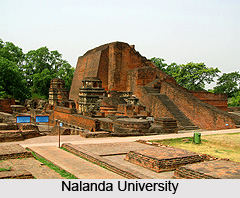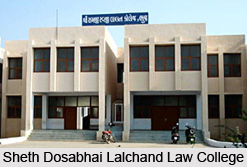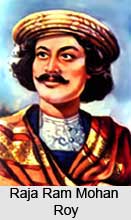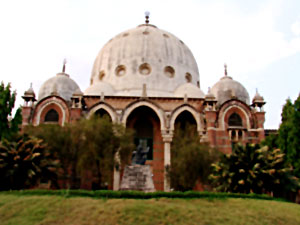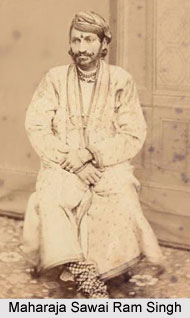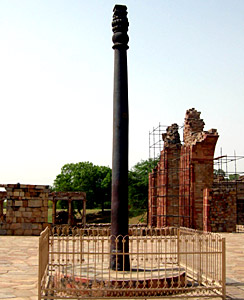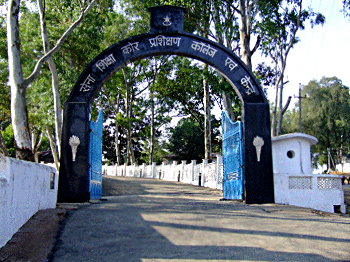Maulana Azad Medical College, Delhi was established in 1958 and it was founded within the premises of the famous Irwin Hospital. The institution is situated in New Delhi and is named after the great patriot and educationist, Maulana Abdul Kalam Azad. The college and its adjacent hospital complex consist of four integral units and these are known as Maulana Azad Medical College, Lok Nayak Hospital, Govind Ballabh Pant Hospital and Guru Nanak Eye Centre. The college was established twenty two years after the commissioning of Irwin Hospital that is a well established general hospital, serving patients mainly coming from Delhi and from the neighboring states of Punjab, Haryana, Uttar Pradesh, Himachal Pradesh and Rajasthan. In fact, it was the Irwin Hospital that actually paved the way for realization of the Maulana Azad Medical College.
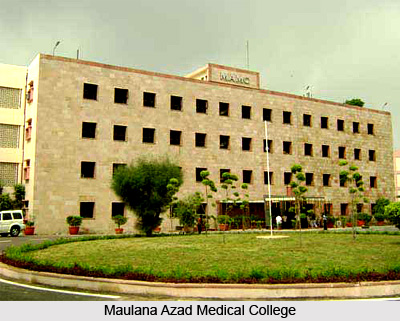 After starting its operations in the hospital block of Irwin (Lok Nayak) hospital in 1958, the then Home Minister of India, Pandit Govind Ballabh Pant laid the foundation of the college`s main building on 24th October, 1959. The building was declared open by the first Prime Minister of India, Pandit Jawaharlal Nehru on 26th February, 1961. After a few years, the Govind Ballabh Pant Hospital was added to the complex in 1964, with a view to provide training facilities and super-specialties. The Guru Nanak Eye Centre started its operations from 20th December, 1977 and a separate out patient department for ophthalmic diseases was also commissioned at the same time. The Dental Wing of the Maulana Azad Medical College was founded in 1983 and this wing has become a fully established Dental College since 2003.
After starting its operations in the hospital block of Irwin (Lok Nayak) hospital in 1958, the then Home Minister of India, Pandit Govind Ballabh Pant laid the foundation of the college`s main building on 24th October, 1959. The building was declared open by the first Prime Minister of India, Pandit Jawaharlal Nehru on 26th February, 1961. After a few years, the Govind Ballabh Pant Hospital was added to the complex in 1964, with a view to provide training facilities and super-specialties. The Guru Nanak Eye Centre started its operations from 20th December, 1977 and a separate out patient department for ophthalmic diseases was also commissioned at the same time. The Dental Wing of the Maulana Azad Medical College was founded in 1983 and this wing has become a fully established Dental College since 2003.
The primary aim and objective of the Maulana Azad Medical College (MAMC) is to produce competent basic doctors, specialists, and super specialists and it has also been working for promoting all facilities conducive to learning and furtherance of knowledge. The institution is intended to do so by contribution to the national health care delivery system by providing efficient and expert medical services through the associated hospitals. The college is also trying to establishing routine and specialized laboratories of excellence and other investigative facilities. Apart from that it is aimed at pursuance of objectives of medical education by improving the course contents, continuing education and strengthening of research activities and also extending medical support to the local authorities for health care programmes. Extending health care facilities to above 30,000 rural population of Delhi through its organized centers in the community is another primary objective of the Maulana Azad Medical College (MAMC), as well.
The MAMC is offering a large number of courses at the undergraduate, post graduate, and at the post doctoral levels in medical specialties. The Medical Council of India has recognised all these courses. This medical college is affiliated to the University of Delhi. The undergraduate courses that the Maulana Azad Medical College offers include MBBS and BDS. The Post-Graduate degree courses that are offered in the MAMC include M.D. in Anaesthesia, Biochemistry including M.Sc., Dermatology including Venerology, Forensic Medicine, Medicine, Microbiology, Obstetric and Gynaecology, Pathology, Paediatrics, Pharmacology, Physiology, Community Medicine, Psychiatry, Radiodiagnosis and Radio-Therapy. The Post-Graduate courses also include M.S. in Anatomy, E.N.T., Orthopaedics, Ophthalmology and Surgery. There are also some PG Diploma courses available in this medical college of Delhi and they include D.A., D. C.H., D.G.O., D.M.R.D., D.O., D.L.O. and D.V.D. The Maulana Azad Medical College offers post doctoral courses in 7 super-specialties and they include D.M. (Cardiology), D.M. (Neurology), M.Ch. Cardiovascular Thoracic Surgery, D.M. Gastroenterology, M.Ch. Neuro-Surgery, M.Ch. Gastrointestinal Surgery, and M.Ch. Paediatrics Surgery.
